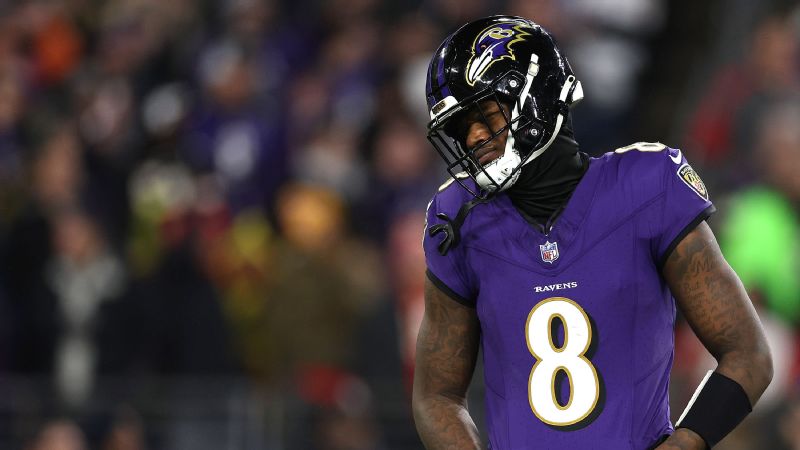
Posted on Jul 19
Lamar Jackson files complaint against Troy Aikman over shared No. 8, citing confusion among consumers.

u/alex •
BALTIMORE, MD -- A trademark dispute has emerged between Baltimore Ravens quarterback Lamar Jackson and Pro Football Hall of Fame quarterback turned ESPN analyst Troy Aikman. Jackson has filed a complaint with the U.S. Patent and Trademark Office against Aikman, citing concerns over the use of their shared number, 8. The case raises questions about the ownership and protection of numbers as trademarks, as well as the potential for consumer confusion.
Lamar Jackson, known for his dynamic play on the field, has taken his talents beyond the football arena and into the realm of trademark ownership. Jackson currently owns or has applied for several trademarks utilizing the number 8 in various phrases. However, he has now set his sights on Troy Aikman's use of "EIGHT" on apparel and bags, claiming that it could potentially mislead consumers.
Jackson's attorney argues that Aikman's use of "EIGHT" would create confusion among consumers, leading them to question whether they are purchasing products affiliated with Jackson or Aikman's company. The attorney further claims that Jackson's personality, fame, and his own trademarks have popularized the number 8, making it an integral part of his brand identity.
To bolster his case, Jackson has filed two appeals to the U.S. Patent and Trademark Office against FL101, a company where Aikman is listed as one of the directors. FL101 currently owns nine trademark applications for the use of "EIGHT" on various consumer products. Jackson's attorney argues that Aikman's products bear similarity to Jackson's trademarks in terms of sound, appearance, connotation, and commercial impression.
Christine Farley, a law professor and intellectual property expert, sheds light on the issue, stating that trademark ownership extends beyond conventional notions. "You can own almost anything you think of as a trademark. You can own a smell. You can own a sound. You can own a single color. You can own a single number," she explains. This broader perspective emphasizes the potential validity of Jackson's claim to the number 8.
As the legal battle ensues, Aikman's company is expected to argue that consumers would not be confused by the presence of a number when purchasing a product. They may contend that the context and branding elements surrounding the number 8 would clearly differentiate the products associated with Aikman from those of Jackson.
The outcome of this trademark dispute could have far-reaching implications for the use of numbers as trademarks within the sports industry and beyond. It will be interesting to see how the U.S. Patent and Trademark Office navigates this clash of the eights and determines the level of consumer confusion that may arise from the overlapping use of the number 8.
In the end, this case highlights the evolving nature of trademark law and the expanding boundaries of what can be considered a protectable mark. As the legal proceedings progress, both Lamar Jackson and Troy Aikman will eagerly await the resolution of their dispute, which could potentially shape the future landscape of trademark protection in the sports world and beyond.
